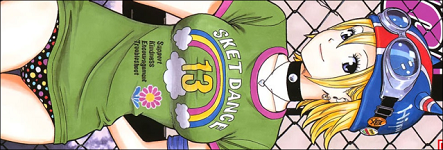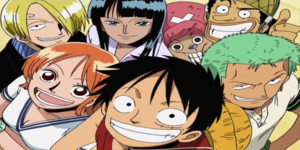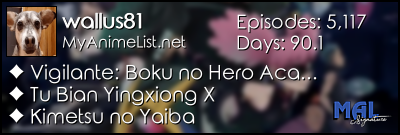A broad look into what Stardust Crusaders means to me
I didn’t cry the entirety of Stardust Crusaders outside one or two tears or watery eyes. The way I saw the deaths were as cool setpieces. The way Abdul got disintegrated was shocking to a degree I never expected to see in a shounen. Kakyoin getting blasted from downtown is brutal and cool and while it all happens, the fighting never stops. It’s rad, some of the raddest deaths I’ve seen, but not emotional. That is, until I began this chapter and the mere freaking mention of Kakyoin’s body being found, and Polnareaff being unconscious made me start sobbing. Jojo has done this twice to me, it’s hit me with emotions I can’t control on a level faster than I can logically understand and I find that beautiful. The other time this happened was when I suddenly found myself crying for Wham, but this was a whole new level. I was sobbing the entire chapter.
In this emotional reaction the entire journey had been contextualized. The way I felt this manga was skippable episodic content sticking to a formula until finally having the freedom to break that formula in the climax has been challenged. In this bittersweet conclusion, upon seeing Dio burn along with the life he has taken and the remaining bros split up and say their goodbyes evoked a strong sense of loss for the fallen comrades we spent so much time with, and a sense of gratefulness for those who made it this far. It was a statement, a representation of our temporal existence. Nothing lasts forever, so we ought to reflect on the journey that felt so episodic. We better appreciate the fun we had, the triumphs we felt, and the friends we made. They could all be gone in an instant as the lack of prolonged grieving scenes and goodbyes masterfully represent, making us appreciate our comrades more when we can. I think the way Stardust Crusaders doesn’t have characters who explode off the page in a way the previous parts did plays into this because no one individual is the point of the text. What we have is the unit, the group, the camaraderie and it evokes a feeling that moves beyond the page in the way a character cannot. It’s the connection that the heroes fought to the bitter end for.
When seeing the story in this light, can I even have an issue with it? The criticisms I thought I held pale in comparison to the strong pay off that was created. It made me feel an appreciation for life and it affected me in a distinct way which manga hasn’t before. It was seriously profound to have all of this pour in through my emotions when I hadn’t even realized it myself. In fact if anything, my criticisms made the ending all the more powerful. There were times that I was somewhat bored. I wanted to rush to the ‘good bits’ and I wanted to see the characters die, I wanted to see the relaxing formula of guys having fun distort. By doing this, I missed the entire point and it took a sobering conclusion to make me realize what I missed. It changes the way I interact with the entire text! It makes me want to make sure I fight to the bitter end and live moment to moment like this story is about. To make the best out of even the hardest of situations and to carry those who fall with me.
Specific Thoughts
To talk more specifically about potential issues I had and their redirection, I’d like to start with stands. Their existence already felt valuable in their creativity and problem solving but they were elusive and each stand of the week had different rulesets. I didn’t care about learning their ins and outs like I did for ripple users, vampires, or pillar men, they were often more like gimmicks to wait until Araki told me how to beat them and then forget about them. However, I realize as later parts will likely have more recurrent villains, this issue will go away. I will likely hang onto every ability and possibility of these powers because they will hold more importance. The issue I brought up before of pacing and formula created a world that was never fully gripping until its peaks but in retrospect that’s the point. We were supposed to enjoy our time with it, not be racing through and dismissing everything that wasn’t crucial. The heroes being less distinct was touched on above in that they formed a coherent sense of camaraderie and a unit which complimented the broader picture. The villains were obviously not that remarkable due to their short standing, I won’t remember many of them at all beyond their powers. Yet, they served their purpose, and some were really effective. Again this is about the connection of friends beyond all else, not deep and intricate villains with motivations! But I will get into Dio later because I adored him.
At first all my critical thoughts made me feel as if my opinion was set in stone when it comes to my favorite Jojo parts. Phantom Blood is one of my favorite manga, and I love reflecting on its characters and ideas. Battle Tendency had some wonderful concepts and it was a blast but it sat in the shadow of Phantom Blood when it came to what I was interested in. What I mean to say is that if I wanted Jojo I’d prefer to read more Phantom Blood rather than reread Battle Tendency. With this in mind, I thought Stardust Crusaders was the part I enjoyed least, however it was unique enough that it was nowhere near the shadow that Phantom Blood left, it was completely its own creation. Because of this, despite enjoying Battle Tendency more consistently, I actually favoured Stardust Crusaders. However, suddenly in one recontextualizing chapter, Stardust Crusaders did something to me even Phantom Blood didn’t do. It imprinted one strong, meaningful and personal point into my dang soul. Looking back, all these issues I had started to dwindle away. Ultimately my point in this paragraph is expressing that no longer do I favour Stardust Crusaders over Battle Tendency because of the shadow left by Phantom Blood, but rather that I prefer it on its own merit and very much appreciate that merit.
I’d like to finish this post by expressing succinctly why Dio sincerely impressed me because the amount of rambling I did in past posts may have been unclear and far more confusing than it had to be. I love this rendition of Dio because, despite burying the inherently human and personal weakness inside of him and making him appear hollow, terrifying, and monstrous rather than tragic, his core is still deeply human. His drive for purpose is something relatable and understandable and it’s no surprise he turned out this way. He is still distinctly human despite playing a different role and being more monstrous than ever. And that is really dang cool.
Currently rating this part a 7/10 or 8/10, we’ll see how it grows over time! |























